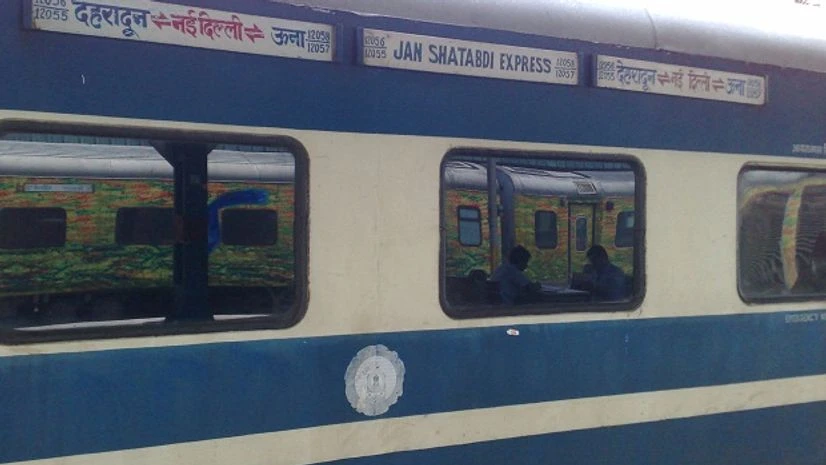The Indian Railways' plan to procure electricity directly from the generator of its choice is moving ahead at snail’s pace with only Maharashtra, Gujarat, Madhya Pradesh and Jharkhand giving their consent. The Railways is targeting a savings of Rs 3,000 crore per annum through the open access of electricity.
“We have to get clearances from the concerned states to use its transmission lines. So far, only Maharashtra, Gujarat, Madhya Pradesh and Jharkhand have given a go ahead signal. We are in talks with other states; Rajasthan and Chattisgarh have given an in principal consent to the move,” railway board chairman A K Mittal said while addressing the Economic Editors’ Conference in Delhi on Friday.
The Railways consume around 2.8 billion litres of diesel a year, costing Rs 18,000 crore, and 17.5 billion units of electricity, costing Rs 12,300 crore. Currently, nearly 30 per cent of the fuel bill goes into paying state taxes.
By an order by the Central Electricity Regulatory Commission in November 2015, the Railways are authorised to undertake transmission and distribution of electricity as a deemed licensee under the Electricity Act.
In addition to this, the national carrier is also planning to import crude oil directly and refine it at Indian Oil Corporation’s (IOC) Vadodara unit.
Through open access of electricity and crude oil imports, it plans to save Rs 35,000 crore on fuel bill in next 10 years.
By an order by the Central Electricity Regulatory Commission in November 2015, the Railways are authorised to undertake transmission and distribution of electricity as a deemed licensee under the Electricity Act.
In addition to this, the national carrier is also planning to import crude oil directly and refine it at Indian Oil Corporation’s (IOC) Vadodara unit.
Through open access of electricity and crude oil imports, it plans to save Rs 35,000 crore on fuel bill in next 10 years.
The chairman said in the next five year’s time, the average speed of freight trains would increase from 25 kilometre per hour to 50 kmph, while that of passenger trains will increase from 55 kmph to 80 kmph.
“As far as dedicated freight corridors are concerned, though it was conceptualised 11 years ago. It has got its shape in the last two years. We have given contracts worth Rs 35000 crore. Once DFC is in place, the speed of passenger trains in Delhi-Mumbai and Delhi-Howrah route will increase to 160 kmph,” he added.
The government has gone ahead with the merger of railway budget with the main budget this year. When asked about this, he said, “It is a simple merger. Though we will have to pay a dividend of Rs 9500 crore this financial year, we will not have to pay this from the next year onwards.”

)
